We all know that as traders we need self-discipline and control. We need to follow our trading plan, and not be taking a bunch of random trades. While we know that, often we can’t do it. So how do we actually create discipline and self-control? How do we do what we’re actually supposed to do while trading!?
This article looks at tactics you can use to develop more self-control and discipline in your trading.
There are two approaches:
- External motivator
- Internal change
Both can be effective for the short-term, but for longer-term results, focus on the internal change until you no longer feel the compulsion to take those random trades or abandon your trading plan.
The internal change is important. Let’s say you make some surface-level changes, such as implementing the external motivator exercises discussed below. They may work, as long as you keep doing them. But some days we’re lazy, or we don’t care, and all of a sudden we find ourselves taking those horrible trades again, or hitting our buy and sell buttons long after we were supposed to stop trading.
External motivation only works when we want to use it. It doesn’t fix the problem. At a core level, something is still driving us to keep repeating the same mistake over and over.
Internal change means we don’t take those trades that aren’t part of our trading plan in the first place. We want to follow our plan. We DO follow our plan. At a core level, we know that if we follow our plan we succeed, and we don’t want to jeopardize that. As a result, we trust ourselves more, because we know we aren’t going to take random trades. That just isn’t who we are.
It’s like someone who smokes. Maybe they manage to avoid cigarettes for a while, but they know that if someone starts smoking around them (or they are drinking, or doing something that is better with a cigarette) they are going to want one. They are a ticking time bomb. It’s only a matter of time before the right conditions occur and they’re smoking again.
Not being able to control ourselves in trading is the same thing! We are all ticking time bombs, ready to make trading mistakes when the right conditions present themselves. And there are plenty of conditions: we’re lazy, we didn’t prepare, we didn’t do our routine, we aren’t sure of our plan, the market is more volatile/quiet/up/down/choppy than we’re used to, we’re angry or in revenge mode, we’re apathetic, and the list goes on.
But, what if you hate smoking. Or if you consider yourself a non-smoker…are you worried about accidentally breaking down and having a cigarette? Of course not. What about a smoker who has quit, and absolutely detests the thought of smoking? Are they likely to spark on up? Not likely, they hate it now.
What’s the difference between the ticking-time-bomb-smoker and the former-smoker-who-now-hates-it (or nearly ever thinks about it)?
IDENTITY.
The first person still sees themself as a smoker, and they’re fighting it (to varying degrees of success or failure). They have to use discipline constantly. And most of us know, discipline tends to fail a lot.
The second person no longer views themself as a smoker. In fact, they view themself as a cigarette hater! They don’t need discipline to avoid cigarettes. They don’t want a cigarette, they don’t think about cigarettes, it’s just not who they are.
Hierarchy of Beliefs
I know you want to know how to become a more self-controlled and disciplined trader. I’m getting to that. But first, it’s important to understand the hierarchy of beliefs. This won’t take long, and just maybe it will change your trading and your life.
Above I highlighted “identity”. It’s the difference between falling repeatably into old patterns, or leaving old patterns behind in favor of a better alternative.
Hierarchy of Beliefs
Environment – Least impact
Behavior
Capability
Value
Identity
Spiritual – Most impact
This hierarchy was developed by Gregory Bateson. I learned about it in a Van Tharp Peak Performance 101 workshop.
It is a scale, where changes made near the top of the list have little impact compared to changes made at the bottom of the list. Value, Identity, and Spiritual are where most trading problems reside. Doing some work there is a direct route to lasting change.
“Environment” is surface-level beliefs. Such as “I need a better strategy to make money”, or “I need more sleep to be more self-disciplined while trading”. This is tinkering, and it is what many of us love to do because we can tell ourselves we are putting in work, but really these thoughts and ensuing actions aren’t doing anything for us. We are spinning our wheels, addressing tiny things while the big issue remains.
“Behaviour” starts to turn the focus more inward. “I lost money because I lost control.”
“Capability” has to do with what we feel comfortable with, or what we are able to do/not do. “I didn’t execute my trading system well” is an observation about capability.
Below we start getting into areas where the real work begins.
“Values” determine what you believe is important. Here’s where many conflicts reside. You value hard work, but also family time. Finding balance is required, or you need to zoom in and see what you value most.
“Identity”, in my opinion, is the direct hack for making lasting changes in all areas. When we change our identity, we change our internal dialogue so that we’re not swayed by the same things we were before, we act how we choose to act, we think how we choose to think. And we’re doing it with purpose and direction.
Identity beliefs are “I’m the type of person that enjoys gambling.” “I am not a risk taker”. “I don’t like myself.” “I’m friggin awesome.” Identify beliefs are our own thoughts and beliefs about who we are.
“Spiritual” is the broad-based beliefs that shape how we view the world. “The world is unfriendly” or “The world is friendly”. “The world/markets are plentiful” or “It is hard to make a living”. “I control my destiny” or “Destiny controls me.”
All these beliefs we hold about ourselves affect how we trade the market.
To improve self-control, we are going to alter our identity, how we view ourselves, and how we act. But…how do we do that?
How to Increase Self-Discipline and Control While Trading – Internal Change (Identity Work)
I am not a psychologist. This practice won’t cure all your problems, but it may help with specific trading mistakes (and other areas you apply it to).
I call this practice”Identity Bombardment” or “Identity Work”. Try it out. It’s not the only way to create change, it is just one way that I find works really well for me and others I have used it with. But not everyone….possibly because they didn’t believe it would work or they don’t think they need it (the exercise is in conflict with their current identity/spiritual beliefs).
Spend 10 minutes each day, or whenever you find time, to work on your “identity” as a trader.
Think about your problem areas. To name a few, these may include:
- closing trades too early
- skipping trades
- not using a stop loss
- expanding the stop loss when the price gets close
- taking too big of a position
- taking too small of a position size
- taking random trades
Identify ONE area you want to work on. Then start working on loving what you want to do, and hating what you currently do.
Let’s say your problem is taking big losses because you don’t use a stop loss, or you cancel your stop loss and don’t like closing out losing trades when you’re supposed to.
Start a passionate dialogue in your own mind. If you can do it out loud, on your own (so you don’t feel judged by anyone else) that is better.
The goal of the passionate dialogue is to change who you are in this aspect: someone who takes big losses, to someone who despises large losses and simply closes positions at the stop loss level.
Some sample dialogue is below. The point is to bombard yourself with as many positive things you can think of about exiting when you’re supposed to, and as many negative things you can think of about holding onto losses. Swearing is optional, of course.
“I AM the type of person that closes out my positions when I’m supposed to”
“I am NOT going to hold the bag if that thing keeps dropping.”
“I FUCKING HATE that feeling of watching a loss get bigger after I pulled my stop loss”
“I DO NOT pull stop losses. I set them and I stick with them.”
“I stick to my stop losses and I make money. It is the big losses that kill my profitability”
“I’m a good trader. I respect my stop losses. That IS who I am.”
“I’m not a fucking flake who gets blown around by the whim of the market. I OWN what I do, and I’m a person that cuts my losses when I’m supposed to.”
“I HATE big losing days. I DO NOT lose more than I’m supposed to…they ruin my month.”
“Erasing those big losing days means I get to do this for a living. That’s me. I’m doing that. Big losses are NOT going to fucking stop me from being a trader and doing this.”
“Every loss is acceptable when I take the trade. I’m risking a small percentage of my account. That’s why I close the trade when I’m supposed to.”
“I’m not a trader that takes big hits. It just doesn’t happen. I respect my stop losses; I set them; they only move according to my plan.
Come up with your own words that resonate with you. Don’t just say the words. Feel them. Get yourself amped up in your mind thinking about these things.
Keep going for as long as you can, or as long as you have time for. Keep repeating things you have already said or anything new you can come up with. Don’t read from a script. Do it all in your mind. Come up with the positives and negatives yourself. YOUR reasons why you need to do X and avoid Y.
Most importantly, you’re focusing on being this type of new person who doesn’t have this problem, and who actually hates this problem.
Close your eyes and build emotion about how you hate what you’re trying to avoid. Build positivity about being the type of person you want to be instead. The type of person who doesn’t take big losses. Think of as many reasons you can for why you don’t like the behavior you want to get rid of.
After the exercise, you should feel like you could be an advocate for controlling losses, because you have such a distaste for big losses and losing control while trading.
One 20- or 30-minute session may be enough to have a huge impact on the problem. Or you may need to do several bigger sessions like this. I also recommend that if you’re having a major trading issue, you do this for a few minutes before you start trading. If there’s a lull in the action while you’re trading, do it for a few minutes then. Do it while driving or while brushing your teeth. Fit it in wherever you can.
Doing this over and over, and then incorporating a brief version into the pre-trade routine, gives us pause when we’re about to do something we aren’t supposed…because what we are about to do now goes against how we are. We can then say to ourselves, “Nope, I am not moving my stop loss. That’s not who I am. Take the loss and use that capital for the next opportunity.”
Eventually, the problem is no longer even a thought. We close our positions without even thinking about it.
Do the exercise until you are that person.
Some people will say” Don’t think about failure! Don’t think about negative things!” That is what self-help literature often teaches. But it is WRONG. Actual studies show that people can benefit from thinking about failure (as well as where you want to get to) and planning for it.
You already know a certain action you are doing is detrimental. So you could very much benefit from developing a great distaste for those harmful things. Don’t believe me? Watch the first few minutes of this video by the Humberman Lab (Andrew Huberman is a professor of neurobiology) on the research.
The EURUSD (forex or futures) provides ample day trading opportunities within a 1 to 2 hour period each day (could trade longer if desired). The EURUSD Day Trading Course lays out an entire method for day trading this currency pair or futures contract, as well as methods for improving your day trading, and getting into and staying in the profit zone.
Internal Change (Spiritual Work)
If you aren’t a “spiritual” type person, don’t get turned off by the word. It simply refers to our beliefs about the world.
Consider how you view the world, and whether those views help you or hinder you as a trader.
If you believe the markets are rigged and corrupt, it will probably be harder to make money compared to someone who believes there is opportunity everywhere.
They believe the opportunities are there, they find them, and they execute on them. Whereas the person who believes the market is rigged continues to find evidence to support that, even while they may be trying super hard to learn how to trade. The background belief just keeps getting in the way.
A belief that there isn’t enough to go around could be combined with a low self-worth belief, and thus deep down you don’t think you are worthy of the profits the market offers. Those profits are for other people; you question whether you are good enough.
On the flip side, someone who believes there is lots to go around in this world is more likely to see and take advantage of opportunities.
You can likely see how beliefs affect our actions and outcomes. Beliefs are generally self-fulfilling until we interject and ask if our beliefs are helping or hindering us.
If a belief isn’t serving us, we can replace it with a different one. We can go through the same process we did with Identity Work.
Look at how your current belief isn’t serving you, and consider a different belief and how it could serve you. Keep going over those scripts, and eventually, your belief may start to change.
External Ways to Increase Control and Self-Discipline While Trading
Internal change is the way to lasting change. But in the meantime, here are some band-aid solutions you can use to help you stay more focused, disciplined, and in control.
Make Yourself Accountable For Your Trading
Accountability is a powerful force. While sometimes we may want to yell and throw a fit in public, knowing others are watching may help keep us a little calmer (at least for the moment).
Creating accountability in our trading works the same way.
Method 1 – Send an Email When You Mess Up
Send an email to someone when you break your trading rules. This could be a friend who trades, your partner, or even just a public post on Twitter, a Facebook group, etc. You can event send emails to yourself…a nice track record of mistakes in your inbox.
Whether you do it or not is up to you. But sometimes even just the thought of having to explain yourself is enough to say “It’s not worth taking this random trade, I’ll follow my rules.”
For a number of years, I was a proprietary day trader. This means I traded at a firm, using their money, and they took a cut of my profits. The office had a risk manager. He wasn’t over our shoulders. He let us trade, but I was always aware that he was monitoring risk. If I messed up for the day (lost more than I was supposed to, called “blowing up”), I had to send an email explaining myself.
When that happens, it helps reduce future incidents. Taking a trade isn’t worth the hassle of feeling ashamed and explaining how I messed up.
More than a decade after I had to send emails, I still feel like I need to if I have a bad day. That imprinted behavior, that feeling of accountability, continues to work for me to this day.
Method 2 – Run an Imaginary Class on Discipline and Strategy
While you’re trading, imagine you have a group of students watching you. They know your trading method, or are trying to learn it, and so they’re watching you trade. They know enough to ask questions if you do something you aren’t supposed to, and to be awed when you take valid trade setups.
You could imagine that you’re streaming your trading screen live on a webinar, or that you’re recording your trading session for others to watch.
Often, this extra accountability can help curb some of our impulses.
I also really like this method because it forces us to talk through the session (like you’re teaching). I call this commentating the price action, which is something I recommend everyone do anyway. You have to explain what the price action is doing, and how that does or doesn’t fit into your strategies. You’ll need to explain why trades are invalid, and why you aren’t taking them, instead of being lured in by impulsiveness.
By being watched, your focus is more on following the plan. Because you want your actions to be congruent with how you said you would act (your trading plan). Acting on impulse and deviating from the plan means answering all sorts of questions, admitting we messed up, and so on. What a pain. Better to just follow the plan!
With this one, your focus is on the process, not the results! You may lose every trade. That’s fine, if the trades where valid. This is a class on discipline and following your protocols, not winning every trade.
Final Word on Improving Discipline and Self-Control While Trading
All these things can help us make fewer mistakes while we trade. The external methods are temporary in that they only work if we do them. The internal method creates longer-term change because over time we become a person that doesn’t make that mistake.
All the methods have their place and can be used together.
If you use these methods, and it helps your trading, let me know in the comments below. Also, if you have other methods that helped you overcome an issue, drop some details in the comments as well.
For a step-by-step video guide on how to swing trading stocks, check out the Complete Method Stock Swing Trading Course
FAQs
Is it possible to trade for a living?
Yes, but it takes a lot of work. There are a lot of things no one tells you about trading for living, and trading is mostly psychological. Being good at trading requires a lot of internal work, such as developing good habits and eliminating bad ones, controlling impulses, and creating beliefs that align with our trading goals (while eliminating beliefs that interfere).
Is it true that most people lose money trading?
Yes, the success rate is very low. For people who want to trade and try, the success rate is 4%. There are a number of reasons why most traders fail, including the market is a hierarchy where the bottom traders (the bulk) feed the traders who are better. Then there are psychological reasons, such as people are unable to overcome their profit-killing impulses. In addition, most people don’t know how to practice and learn effectively, or choose not to.
What are some other psychological methods to improve my trading?
There is a powerful technique called a Parts Negotiation. If you feel like you’re getting pulled in different directions while you trade, this exercise may help. When you have one voice saying take the trade, and another saying skip it because it’s too risky/scary, that could be a problem a parts negotiation can help with.
By Cory Mitchell, CMT
Disclaimer: Nothing in this article is personal investment advice, or advice to buy or sell anything. Trading is risky and can result in substantial losses, even more than deposited if using leverage.


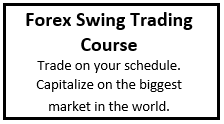
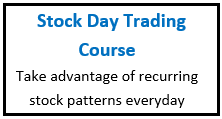
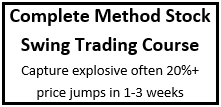
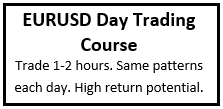
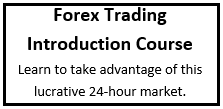
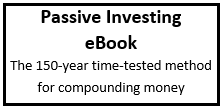
10 Comments
Leave your reply.